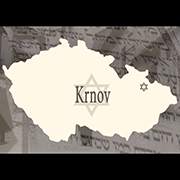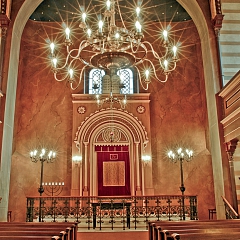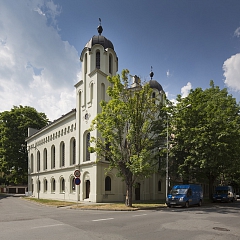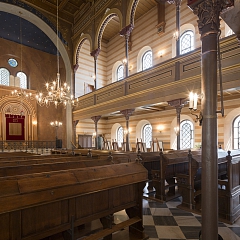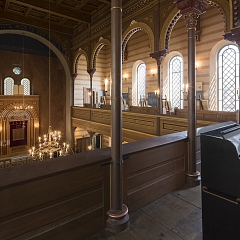
-
Krnov
The Krnov Synagogue
The Krnov Synagogue was one of the few in the Czech borderlands to remain untouched by arson during the autumn 1938 Kristallnacht. It is one of the three remaining synagogal buildings in the Moravian-Silesian Region (the others are in Nový Jičín and Český Těšín). It is also only one of three to have retained its original appearance, and thus its historical value. It was built in 1870–1871 by local builder Ernest Latzel on a site originally occupied by the city walls. This is a Romanesque Revival structure, with Byzantine elements that are especially visible in its two towers. The original interior was dominated by Moorish Revival elements, inspired by the buildingsof the Sephardic Jews. While the Krnov Jewish community was not an Orthodox one, its synagogue did respect the traditional principle of separating visitors at services: men were on the ground floor, while women were in the gallery. In 1898, the synagogue was furnished with an organ – typicalfor Reform Judaism synagogues – supplied by Krnov’s Rieger Brothers firm. The synagogue ceased holding religious services at the end of 1938, after the German army occupied Krnov. During World War II, the building served as a marketplace; and from the sixties to the nineties, it housed the district archives. Today, the building is owned by the Prague-based Federation of Jewish Communities in the Czech Republic. It is operated by "Association at the Synagogue", who provide cultural events for the public here. The funds invested as part of the Revitalization of Jewish Monuments in the Czech Republic project amount to CZK 3,162,100.
